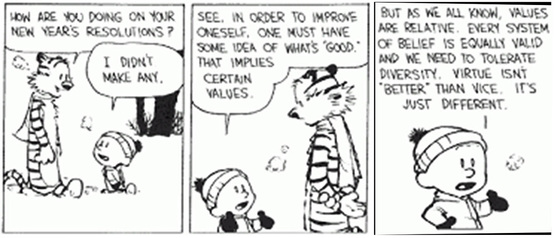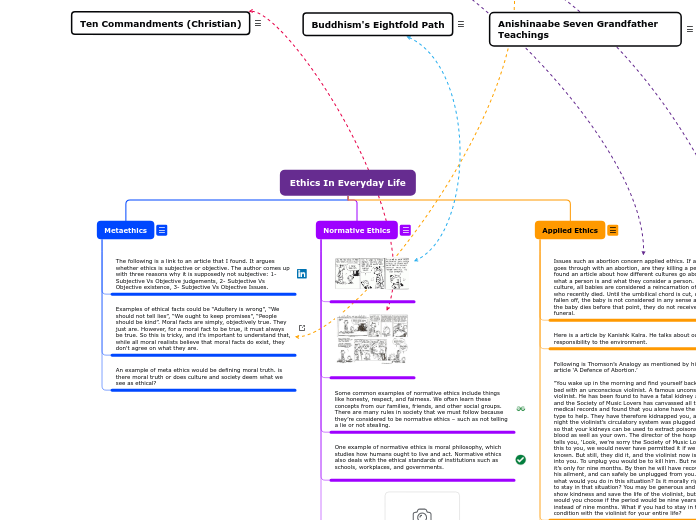Ethics In Everyday Life
Metaethics
The following is a link to an article that I found. It argues whether ethics is subjective or objective. The author comes up with three reasons why it is supposedly not subjective: 1- Subjective Vs Objective judgements, 2- Subjective Vs Objective existence, 3- Subjective Vs Objective Issues.
Examples of ethical facts could be “Adultery is wrong”, “We should not tell lies”, “We ought to keep promises”, “People should be kind”. Moral facts are simply, objectively true. They just are. However, for a moral fact to be true, it must always be true. So this is tricky, and it's important to understand that, while all moral realists believe that moral facts do exist, they don't agree on what they are.
An example of meta ethics would be defining moral truth. is there moral truth or does culture and society deem what we see as ethical?
Normative Ethics


Some common examples of normative ethics include things like honesty, respect, and fairness. We often learn these concepts from our families, friends, and other social groups. There are many rules in society that we must follow because they’re considered to be normative ethics – such as not telling a lie or not stealing.
One example of normative ethics is moral philosophy, which studies how humans ought to live and act. Normative ethics also deals with the ethical standards of institutions such as schools, workplaces, and governments.

This is an example of utilitarianism. the person in yellow is put in a position where they need to think of themselves before the benefit of other people.
Applied Ethics
Issues such as abortion concern applied ethics. If a woman goes through with an abortion, are they killing a person? I found an article about how different cultures go about defining what a person is and what they consider a person. In Being culture, all babies are considered a reincarnation of people who recently died. Until the umbilical chord is cut, dried, and fallen off, the baby is not considered in any sense a person. If the baby dies before that point, they do not receive and funeral.
Here is a article by Kanishk Kalra. He talks about our moral responsibility to the environment.
Following is Thomson’s Analogy as mentioned by him in his article ‘A Defence of Abortion.’
"You wake up in the morning and find yourself back to back in bed with an unconscious violinist. A famous unconscious violinist. He has been found to have a fatal kidney ailment, and the Society of Music Lovers has canvassed all the available medical records and found that you alone have the right blood type to help. They have therefore kidnapped you, and last night the violinist’s circulatory system was plugged into yours so that your kidneys can be used to extract poisons from his blood as well as your own. The director of the hospital now tells you, ‘Look, we’re sorry the Society of Music Lovers did this to you, we would never have permitted it if we had known. But still, they did it, and the violinist now is plugged into you. To unplug you would be to kill him. But never mind, it’s only for nine months. By then he will have recovered from his ailment, and can safely be unplugged from you.” Now, what would you do in this situation? Is it morally right for you to stay in that situation? You may be generous and decide to show kindness and save the life of the violinist, but what would you choose if the period would be nine years or more instead of nine months. What if you had to stay in that condition with the violinist for your entire life?

Two brothers, brother-A and brother-B decide to kill their cousin because they have to share a large share of the inherited property with him. Brother-A throws his cousin into a pool, knowing he does not know swimming, and brother-B lets his cousin drown in the pool. The only difference (the bare difference) between the acts of the two brothers is that one killed the cousin while the other let his cousin die.”
Here, the bare difference arguments would be, Is brother A more morally wrong or both the brothers are equally wrong?
